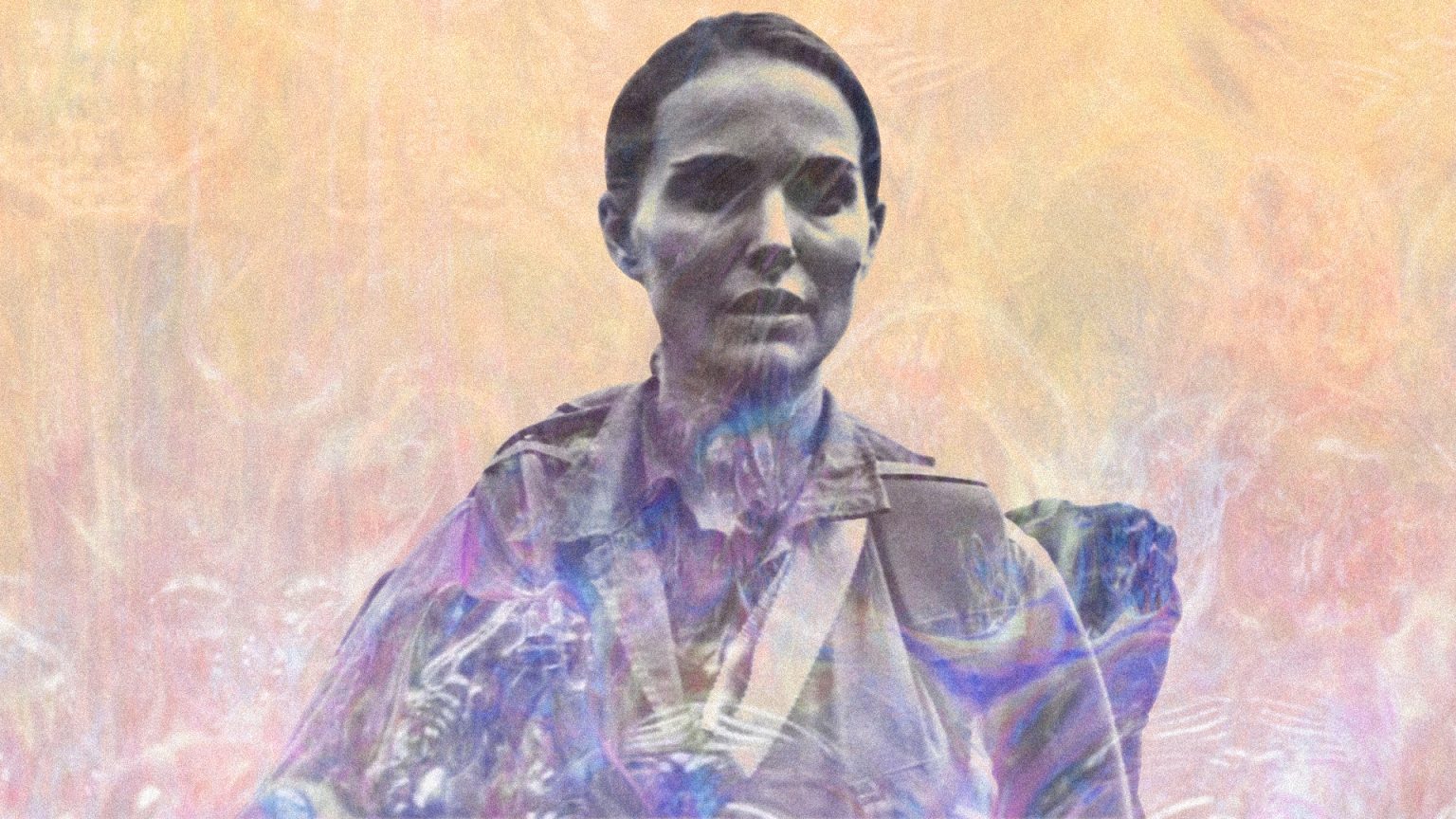When Annihilation was announced we at Fandor, like many other fans of writer Jeff VanderMeer’s Southern Reach Trilogy, asked ourselves, “How the hell are they going to pull that off?” Then we saw that Alex Garland — of Ex Machina fame — was set to direct and our fears turned to excitement. Then, as editing wrapped on the film and it was beginning to be shown to test audiences, we heard the news that Paramount scheduled the release of the movie for February, a notorious Hollywood “dump month” (for more on this subject check out our feature article here), and our initial trepidation was rekindled. “Of course that movie’s going to bomb,” we told ourselves. “It’s basically unfilmable!”
Alex Garland is (with Denis Villeneuve) on a very short list of young Hollywood filmmakers with, theoretically, the ability to bring the style and intellect of a genre-busting book like Annihilation to the big screen. So if he can’t do it, who could?
Then the latest twist: The reviews have been good. In fact, they’ve been better than good; they’ve been pretty great. Honestly, it’s been a roller-coaster folks. But, long story short, the ride that has been Annihilation’s journey to release got us thinking: What are some examples of books that would just be impossible to film? What makes a book unfilmable? And what other films, like Annihilation, seems to, accomplish the seemingly impossible?
When we think of films as unfilmable, we see them as breaking down into two distinct categories. The first is one of physical limitation. Perhaps the breadth of the story is too vast to adhere nicely to a typical film’s runtime. Or maybe the cost of creating and filming the epic world and events within a book would be too costly—even by the standards of the summer blockbuster. Now, with advancements in film technology and the rise of TV miniseries these limitations are quickly becoming a thing of the past. What often proves a more difficult hindrance is the way the story of a novel may be told. In Annihilation’s case, the story is told through the eyes of the protagonist and by doing so the author controls how he delivers information to the reader. The descriptions of what the biologist (who’s never named in the book) sees are often nebulous and inexact. In short, you are not getting objective information; you are getting interpretation. And interpretation is a lot harder to pull off in the visual medium.
It seems there are two ways a novel may prove “unfilmable”—either by technological or budgetary limits or by the different ways these two mediums communicate with the audience.
Let’s talk about Cloud Atlas. Cloud Atlas is the movie adaptation of the book of the same name written by modern literary master David Mitchell. In setting out to make the movie adaptation of this book there are a million and one red flags—the grand scope of the story that extends throughout human existence, the huge cast required, and the themes of connectedness and long-reaching consequences that are things often thought, or implied, or indirectly referenced without being necessarily shown to the reader. In that way, it has the same barrier for adaptation as Annihilation. Add to that that the Wachowski’s, outside of Bound and the first Matrix film, don’t exactly have the most sterling record when it comes to directing. And yet (and I know I’m going to sound controversial here) Cloud Atlas works. No, the acting isn’t consistent, and what the hell was going on with that make-up? But it just works. The Wachowski’s lean heavily on their own interpretation of the book and come away (with the help of undervalued performances by Ben Whishaw, Jim Sturgess, Doona Bae and the always amazing Jim Broadbent) with a movie that captures the feeling of reading the book. It’s full of hope. It’s uncynical. And it’s genuinely moving.
Movies like Cloud Atlas and Annihilation demonstrate that most stories, even grand ones, can be adapted to film. But what about a novel that depends on how we read or on the way the book is formatted?
So we’ve come to the part of the article where we talk about House of Leaves by Mark Z. Danielewski, a novel on the shortlist of books (along with Infinite Jest and Gödel, Escher, Bach) guaranteed to be brought up by white cis-gendered men trying to impress women at parties (and probably making them very uncomfortable in the process). Listen, love it or hate it, House of Leaves is a very popular book that, unlike Annihilation, might actually be unfilmable because of how it plays with language. How can a director or writer adapt footnotes to the screen? How can they interpret font and text colour changes? How can they put the maze of conflicting narratives and blind alleys into a movie? In this case, it might not actually be possible—unless Charlie Kaufmann figures out how to do it. I mean, the man wrote the ultimate adaptation that was also the ultimate meta-send up of adaptations. Okay, I would watch House of Leaves as done by Charlie Kaufmann.
Listen, when we ask the question, “Is a book unfilmable?” the answer is, invariably, “No.” Of course, anything can be done. But can it be done well? Can you communicate effectively from one medium to the next? As fans, we want our cake and to eat it too. When we anticipate a film adaptation, we don’t want anything cut or changed from the books we love, but we also want something…you know…watchable. And often—no, almost always—that’s exactly what an adaptation requires to be good.




